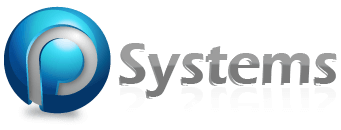
Customer relationship management (CRM) is a platform that helps businesses manage their interactions with customers .CRM can help businesses improve customer relationships, increase sales, and boost profits.
Some of the key advantages of using CRM:
- Beneficial for the different departments or teams of the business
Customer relationship management automation systems can benefit small and large businesses and their teams, such as marketing, sales, customer service, field service, and project service automation teams in different aspects. Together they raise the business’s growth chart by increasing the product’s productivity. With this, CRM is capable of improving and simplifying complex customer engagement.
- Customers are engaged across multiple channel
There are various advantages of using a CRM system for a business as it provides the best possible customer service by improving customer service, customer retention, tracking customer data, streamlining operations, reducing costs, and taking the business to the next level. The CRM can engage the user with its customer across multiple channels like email, social media, live chat, and phone. You can connect with your customer on any platform and track customer interaction in one place, which helps get a complete picture of each customer.
- Improve decision-making and productivity
Artificial intelligence-powered customer relationship management software help business make a faster and smarter decision. AI can collate data from customer interactions and track customers across mediums and devices. For certain CRM operations, most customers use self-service channels such as customer portals or knowledge bases for simple issues and questions.
- Helps in increasing sales
As with CRM, the customer service team can reach every customer that increases the sale of every business and track the progress of each sale opportunity. This information will be used to tweak the sales process and apply ways to increase the chances of sales. It is a lead management tool with which we can keep an eye on what works well or is not.
- CRM made targeting and marketing simple
CRM can collect all the customer information to help a company focus on specific customers with different marketing strategies to increase product sales. The sales team collects and studies all this information to create new strategies to pitch the new product offers to the customer’s and resulting in the product’s sales increment. Due to this, customers receive the desired product and services, which make business collect the customers’ responses.
- Data mining
CRM stores customer data in one place and allows people to discover progress areas, creating a real-time business environment where the user can make instant changes. With this, we can analyze the CRM or business performance.
- CRM growing scope in the market
Companies use CRM tools to survive in the competition of growing databases. It becomes difficult to meet the specific need of the increased number of customers personally because each interaction needs a specific commitment from CSR (customer service representative). The CRM software tool can be tailored to fit any budget and help the companies to grow and expand themselves while fulfilling the requirement of customers.
- Centralized data makes everything convenient.
All the gathered data is stored and maintained at one centralized location in CRM, which can be easily accessible to those who require it to function properly. In CRM, an employee or user can quickly find the required information without going through multiple data points, saving an employee’s time. It also makes employees efficient and productive employees who can devote more time to solving other issues of the customers & company.
- Tracking of customer data
Valuable collected data give an insight into the need of customers, problems faced by them, correction required, and how you can serve them better. Collected data can be tracked and saved in a CRM system that provides an overall view of customers about your product and business. As CRM integrates all the data under one roof collected from various means (online transactions, customer service inquiries, by-sale meetings, etc.), automation tools make it easier for the team to track required data in minutes without any mistakes.




